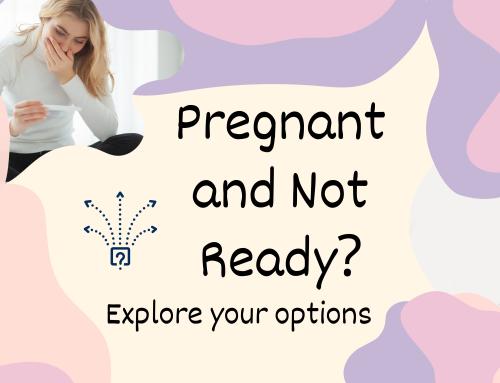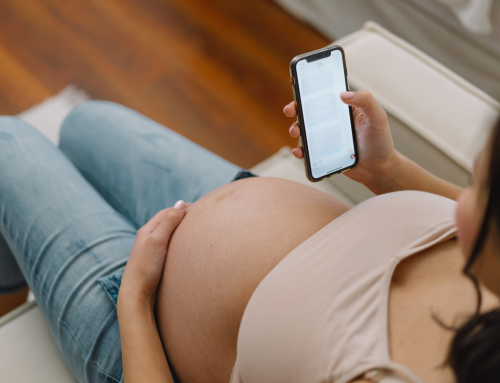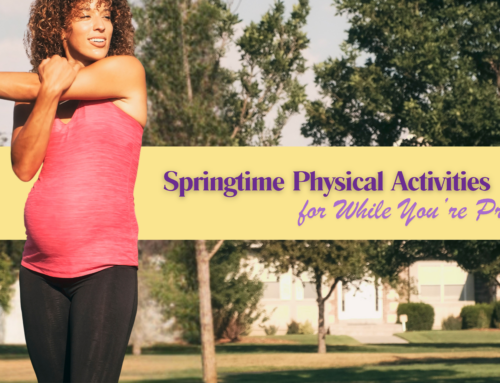According to VA Performs, a research program maintained by the state government, Virginia has the twelfth lowest teen birth rate in America. In 2003, about 36 out of every 1,000 women aged 15 to 19 had babies. In 2012, that number was down to around 23 out of every 1,000 in 2012. In fact, Virginia’s teen birth rate has steadily decreased over the last decade in every region but Southside.
Of course, many more teens get pregnant, but choose not carry their babies to term. Around 5.6% of Virginia’s female teens, or 56 out of every 1,000, get pregnant every year. Comparing that statistic to the previous one, we can assume that around 59% of pregnant teens in Virginia decide to terminate their pregnancies.
Unplanned Pregnancies In Virginia
Overall, the unplanned pregnancy rate in Virginia is similar to the state’s teen pregnancy number. For every 1,000 women, approximately 53 will experience an unintended pregnancy in any given year. The Guttmacher Institute reports that nearly 87,000 women in the state faced an unplanned pregnancy in 2008 alone. But unlike teens, more than half decided to carry their babies to term and give birth.
In West Virginia, where the poverty rate is consistently one of America’s highest, the unplanned pregnancy rate has actually increased, from around 37% in 2002 to 43% in 2008. Unintended pregnancy is far more common in low-income areas.
The truth is that it’s more likely you’ll face an unplanned, or unintended, pregnancy than one you’ve been preparing for. If you’re currently pregnant in Virginia, our guide will help you find the services and programs you need to have a happy, healthy baby.
Caring For Your Baby & Self Before Birth: Nutrition & Doctors
Finding Low-Cost Health Care For Your Baby
In most states, a government program called Medicaid offers free, or subsidized, health insurance to individuals and families in need of economic support. Receiving proper “prenatal” care, the medical appointments and treatment you get before your baby is born, is essential to your health and that of your baby. It’s probably the most important thing you can do for your child.
Virginia’s Medicaid operates a program called Family Access to Medical Insurance Security (FAMIS), which covers healthcare for pregnant women. You won’t have to pay a monthly fee, or any enrollment payments, when you apply for FAMIS, but the program is only open to women 19 years old and younger. You also have to meet certain income requirements, which vary depending on the size of your “household.”
Live by yourself? Your household income has to be at or below $23,340. Live with someone else who plans on paying for at least some of your pregnancy-related expenses? Your combined income needs to be at or below $31,460. You can find more information on income requirements here.
Your health coverage under FAMIS will continue after your baby is born, covering all necessary medical expenses until they are one year old. While some prescriptions and tests will require a co-pay, it’s usually very low, around $3 to $5.
For pregnant women over 19, you can apply for Virginia’s standard Medicaid insurance. You can find out if you’re eligible here.
Finding Healthy Foods
Keeping yourself and your baby healthy is often a matter of finding the right nutritional foods and stocking your pantry correctly. The State can help with that, too.
The Department of Social Services’ Special Supplemental Nutrition Program for Women, Infants, and Children (WIC) helps pregnant women and the mothers of newborns find healthy foods at participating local retailers. And if you were approved for FAMIS, you’re already eligible for WIC.
You may also qualify for Virginia’s Supplemental Nutrition Assistance Program (SNAP), which replaced “Food Stamps” recently. You can learn more about eligibility here.
After Delivery: Help With Your Basic Needs
Temporary Assistance For Needy Families (TANF) is a program run by the Department of Social Services. Every month, families in need receive cash payments intended to cover basic needs, like food, rent and utilities. The program also offers job skills training and child care, if you qualify.
Pregnant women become eligible for TANF one month before their expected due date. To find out if you qualify, visit Virginia’s CommonHelp website.
Low-Cost Day Care
If you need to work, or spend time furthering your education, properly caring for a newborn can be difficult. Virginia’s Child Care Subsidy Program can help pay for the cost of quality child care. Learn more here.
Considering Your Options
Facing an unplanned pregnancy? It’s okay to be unsure of the future, few people are. And while it might not seem like it now, you have options, good options, that can help you reach your goals and ensure your baby’s long term health.
Ready to parent? Great! Start learning everything you can about the process, including the common challenges of caring for a baby. You can find more information here.
Not sure? There’s no shame in that. You’ve got time to educate yourself about your choices and make the best one. But learning about all this stuff, adoption, abortion and parenting can be difficult, especially when it’s different for everyone. If you need help, or just want to discuss your feelings with someone else, give our counselors a call at 1-855-711-1609. We don’t have an agenda, and we don’t want to convince you of anything. We’re just experienced pregnancy counselors who want to help. Our lines are always open, 24 / 7, and everything is free.





